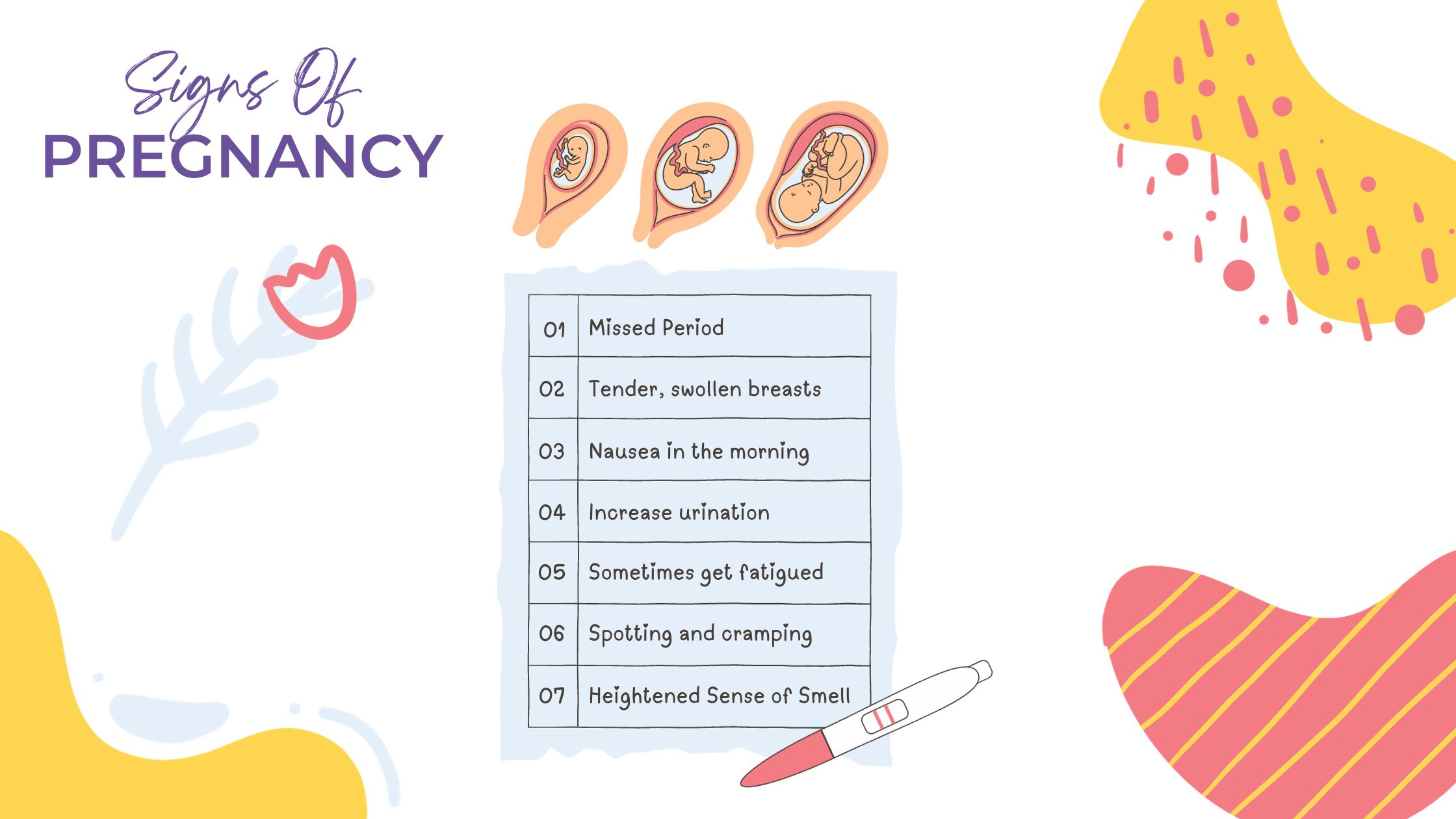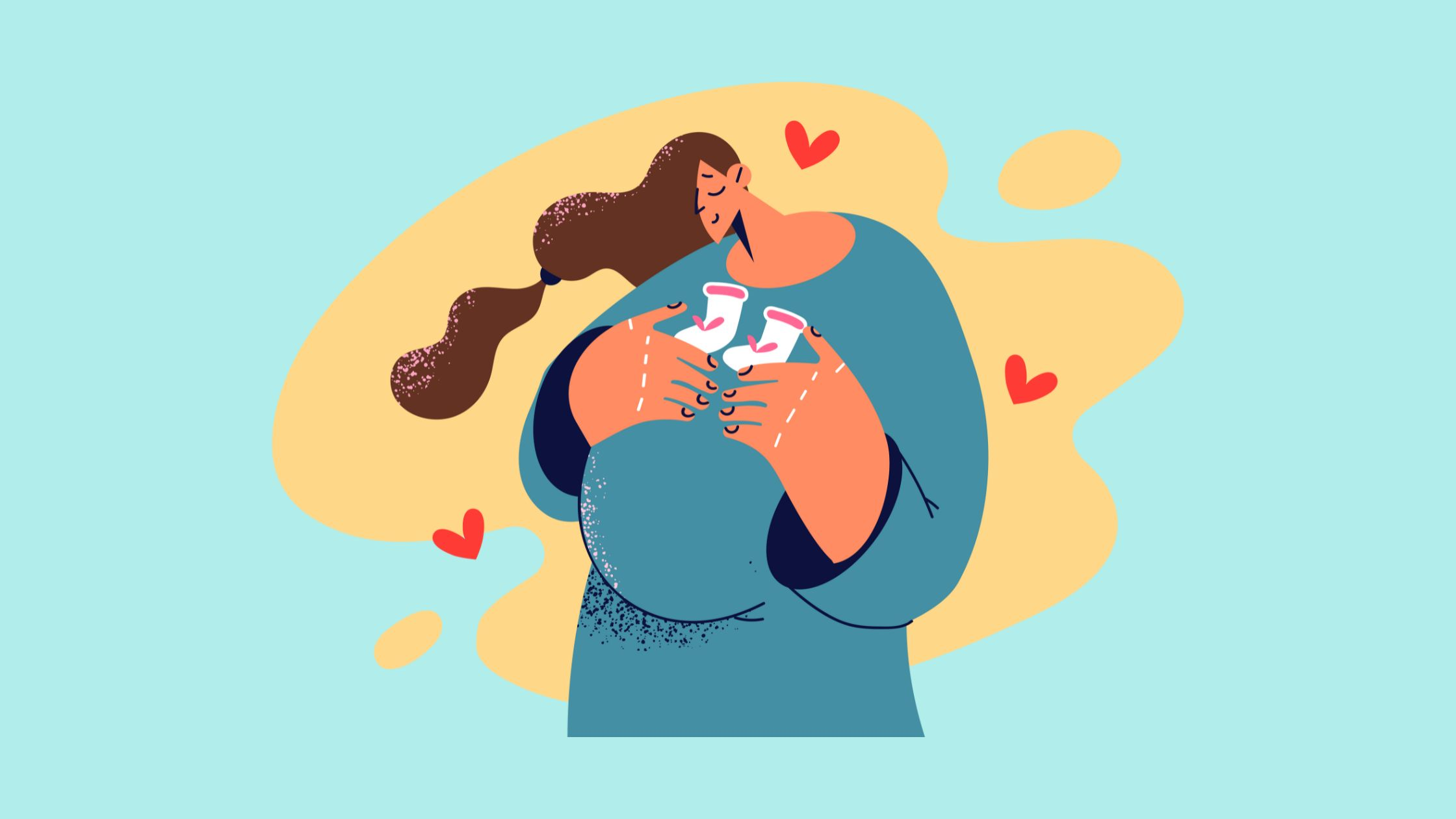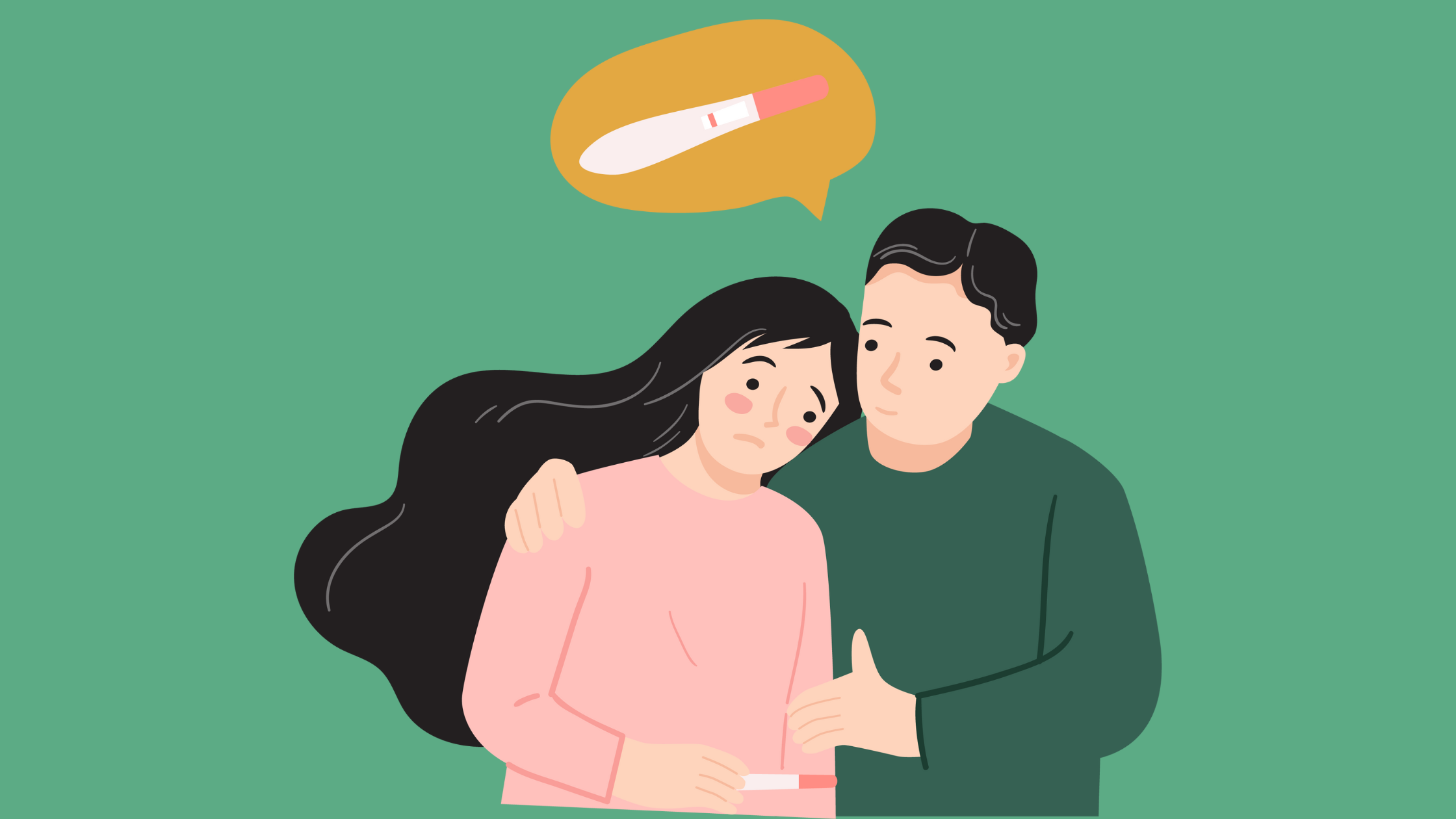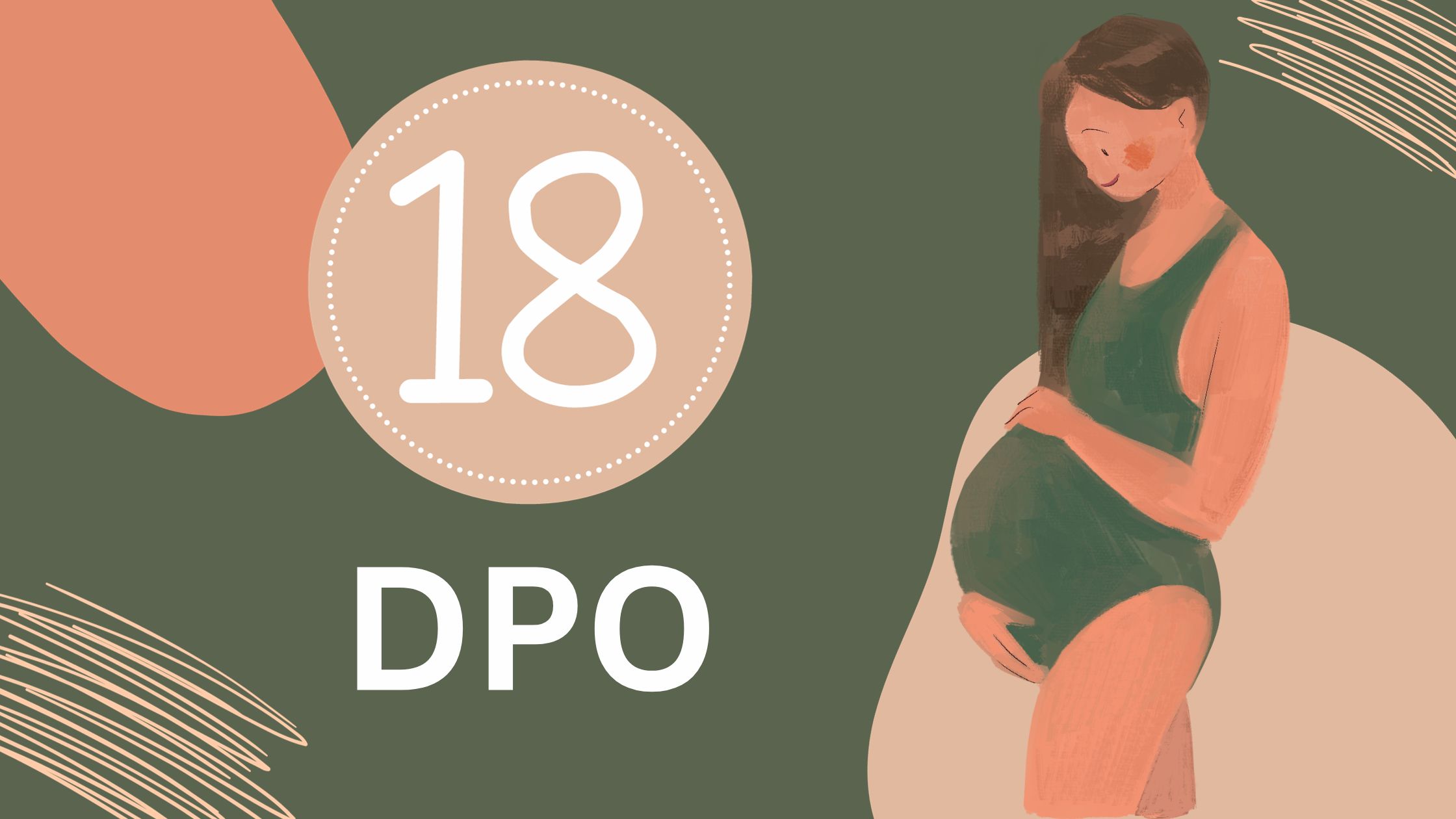Are you anxiously waiting to know if you’re pregnant and currently at 18 days past ovulation or 18 DPO? The suspense can be nerve-wracking, but understanding the signs, symptoms, and expectations at this crucial stage can help you manage your emotions and prepare for the possible next steps in your journey to parenthood.
What’s Happening in My Body at 18 DPO?

Upon reaching 18 DPO, you might observe significant changes in your body. These can range from implantation, where the fertilized egg adheres to the uterine lining, to the onset of Human chorionic gonadotropin (hCG) production, the hormone associated with pregnancy. As a result, you may notice hormonal fluctuations and early pregnancy symptoms, although it’s important to remember that not all women will experience these symptoms.
Congratulations if you receive a positive result on a pregnancy test 18 days past ovulation! It’s time to start preparing for your initial medical visits and consider taking prenatal vitamins. This week holds particular significance as the foundation of your baby’s brain and spinal cord begins to shape.
Common Pregnancy Symptoms at 18 DPO

By the time you reach 18 DPO, a pregnancy test should be spot-on in letting you know if there’s a bun in the oven. But don’t toss in the towel if you’re squinting at a negative test result. There’s a chance you might’ve mixed up your dates a bit, giving that pregnancy hormone, hCG, some extra time to make its mark.
It’s normal for some women not to feel any pregnancy symptoms until around the sixth week. That’s when the morning sickness often decides to crash the party. But then again, some lucky ducks sail through their nine months without a craving or gag reflex.
Some common pregnancy symptoms include:
1. Missed Period
A missed period is often the first and most significant indicator of pregnancy, and it can be noticed at 18 DPO. If you experience a missed period, taking a pregnancy test to confirm the results is crucial.
Of course, you might receive a negative test result, which can be disappointing. But keep hope! It’s recommended to wait a few days and test again, as sometimes the levels of hCG in your system might not be high enough for the test to detect at 18 DPO. Keep your fingers crossed and hope for a positive outcome.
2. Fatigue
Fatigue is a common symptom at 18 DPO, and it can be attributed to hormonal changes in your body, such as increased levels of progesterone. This hormonal fluctuation can leave you exhausted, moody, and overwhelming even on the simplest tasks.
You’re not alone in feeling this way. Many women experience fatigue in the form of tiredness and persistent exhaustion during early pregnancy. Despite the lack of direct studies on the link between fatigue and 18 DPO, fatigue remains a commonly reported symptom during pregnancy that can also occur during this time.
3. Tender and Swollen Breasts
Upon reaching 18 DPO, you might experience breast tenderness, possibly linked to hormonal changes induced by ovulation and pregnancy. These changes can lead to breast soreness, swelling, and even nipple sensitivity.
If you’re experiencing tender and swollen breasts, you can try a few remedies to find relief. Some options include:
- Applying a cold compress
- Moisturizing with a lanolin cream
- Wearing loose clothing and a well-fitted bra
- Taking warm showers or baths
- Wearing a bra to bed for extra support
4. Heightened Sense of Smell
A heightened sense of smell is another early pregnancy symptom you might experience at 18 DPO. This increased sensitivity to odors and enhanced ability to detect smells can be attributed to the hormonal changes associated with pregnancy.
Though no concrete scientific studies validate an enhanced sense of smell at 18 DPO as a pregnancy sign, several women have reported a heightened olfactory sense during pregnancy.
5. Headaches
Headaches at 18 DPO can be caused by various factors, including:
- Insufficient sleep or fatigue
- Sinus congestion
- Allergies
- Eyestrain
- Stress
However, hormonal fluctuations and increased blood volume during pregnancy can also contribute to headaches.
While headaches can be a common symptom at 18 DPO, they can also be managed through self-care measures such as:
- ensuring adequate rest
- staying hydrated
- practicing relaxation techniques
- avoiding known headache triggers
6. Spotting or Bleeding
Spotting or bleeding at 18 DPO may be due to implantation bleeding, a common pregnancy symptom. Implantation bleeding is generally light and may present as a few drops of blood when wiping. It’s usually accompanied by mild cramping in the lower abdomen. It’s important to note that bleeding could also indicate other factors, such as hormonal changes or a possible miscarriage. Therefore, if you are experiencing bleeding at 18 DPO, seeking advice from a healthcare professional for further evaluation is advisable.
At 18 DPO, the difference between spotting and a period is usually quite apparent. Spotting is typically lighter than a period and may only last a few days, appearing pinkish or dark brown. In contrast, a period tends to be heavier and bright red. If the bleeding continues for more than a few days, it is less likely to be implantation spotting.
7. Mood Swings
Mood swings at 18 DPO may be due to hormonal changes, which can cause sudden shifts in your emotional state. As your body adjusts to the hormonal fluctuations of early pregnancy, you might feel more emotional or irritable than usual.
To manage or reduce mood swings at 18 DPO, you can try the following:
- Ensure adequate rest
- Engage in light to moderate physical activity
- Consume nutritious meals
- Practice self-compassion
- Seek support from loved ones
These strategies can help you navigate the emotional rollercoaster during early pregnancy.
Can I Take a Pregnancy Test at 18 DPO?
Taking a pregnancy test at 18 DPO can provide accurate results, though individual experiences may vary. For the most accurate results, it is advised to use your first-morning urine and carefully follow the instructions on the urine test. If you keep getting negative tests but still suspect you’re pregnant, it is recommended to wait a few days and test again.
In case of a suspected pregnancy at 18 DPO with an inconclusive pregnancy test, your healthcare provider might suggest blood work, such as a blood test, to verify the presence of hCG, the hormone indicating pregnancy. This blood test can help provide a more definitive answer and guide you on the next steps of your pregnancy journey.
Can Implantation Happen 18 DPO?
Implantation usually takes place between 6 to 12 DPO. Hence, its occurrence at 18 DPO is less likely. Yet, if ovulation dates have been misjudged, implantation might still happen at 18 DPO.
It’s important to remember that each pregnancy journey is unique, and unusual outcomes can occur. If you suspect implantation may have happened at 18 DPO, consult your doctor for further guidance and evaluation.
Can Implantation Bleeding Happen 18 DPO?
Implantation bleeding at 18 DPO is uncommon, but it is possible if your ovulation dates were miscalculated. Implantation bleeding typically occurs between 6 to 12 DPO and is characterized by light spotting or bleeding that lasts for a short duration, usually 24 to 48 hours.
If you’re experiencing spotting or bleeding at 18 DPO and suspect implantation bleeding, it’s crucial to monitor the bleeding and consult your doctor for further evaluation and guidance.
18 DPO No Period: What Does That Mean?
No period at 18 DPO could indicate pregnancy. Or, it could be something else. If your cycle is typically longer than 28 days, it may be expected not to have a period at 18 days past ovulation.
If you are trying to conceive (TTC) and have a missed period at 18 DPO, monitoring your menstrual cycle and associated symptoms for a few months is essential. This can provide a more accurate understanding of when you are ovulating and when you can expect your next period.
How Many DPO Is Considered Late?
A DPO is generally considered “days late” when a menstrual cycle is missed or if there is no implantation bleeding more than two weeks post ovulation. Since the average menstrual cycle length varies from 24 to 38 days among women, the exact time a period is considered late can differ for each individual. Sometimes, a period might be regarded as “4 days late,” depending on the woman’s regular cycle.
If you suspect your period is late, monitoring your symptoms and consulting with a healthcare provider for further evaluation and guidance is essential. This can help you determine the cause of your late period and provide appropriate care and support.
Is 18 DPO Too Early to Test?
Testing at 18 DPO is not too early, but waiting a few more days may increase the accuracy of the results. Pregnancy tests are typically most accurate after 14 DPO, so if you still suspect you might be pregnant after receiving a negative test result at 18 DPO, you should wait a few additional days before retesting.
Big Fat Positive (BFP) at 18 DPO

A positive pregnancy test at 18 DPO calls for celebration and preparation for the thrilling journey ahead. At this stage, you would be in the fifth week of your pregnancy, considering the first week counts as the first day of your last menstrual period.
Now that you’ve received the exciting news, it’s time to start thinking about prenatal care and planning for the arrival of your little one. Stay informed and connected with your healthcare provider throughout your pregnancy to ensure the best care for you and your baby.
Big Fat Negative (BFN) at 18 DPO

An 18 DPO negative pregnancy test result doesn’t rule out a pregnancy. If your test result is negative, but you still suspect a pregnancy, taking a pregnancy test after a few days is advisable.
Individual experiences may vary, so remember that each woman’s journey to parenthood is unique. Stay positive and focused on your goal, monitor your symptoms, and consult your healthcare provider for guidance and support.
Takeaway
- At 18 DPO, a positive pregnancy test may be present, and hormonal fluctuations and early pregnancy symptoms such as missed periods, fatigue, tender breasts, heightened sense of smell & mood swings may be experienced.
- Understanding the indications, symptoms, and possibilities at 18 DPO can assist in regulating your emotions and getting ready for the forthcoming steps on your path to parenthood.
- Whether celebrating a big fat positive or navigating the uncertainties of a negative test result, staying informed and connected with your healthcare provider can provide valuable guidance and support throughout your pregnancy journey.
References
Center for Devices and Radiological Health. Pregnancy. U.S. Food and Drug Administration, FDA, 29 Apr. 2019, www.fda.gov/medical-devices/home-use-tests/pregnancy.
Symptoms of Pregnancy: What Happens First. Mayo Clinic, Mayo Foundation for Medical Education and Research, 11 May 2019, www.mayoclinic.org/healthy-lifestyle/getting-pregnant/in-depth/symptoms-of-pregnancy/art-20043853.
Am I Pregnant? Early Symptoms of Pregnancy & When To Test. Cleveland Clinic, 1 Apr. 2020, my.clevelandclinic.org/health/articles/9709-pregnancy-am-i-pregnant.
Betz, Danielle. Human Chorionic Gonadotropin (HCG). StatPearls, U.S. National Library of Medicine, 27 Apr. 2020, www.ncbi.nlm.nih.gov/books/NBK532950/.
Implantation Bleeding: Normal in Early Pregnancy? Mayo Clinic, Mayo Foundation for Medical Education and Research, 9 May 2019, www.mayoclinic.org/healthy-lifestyle/pregnancy-week-by-week/expert-answers/implantation-bleeding/faq-20058257.
What are some common signs of pregnancy? (2017).
https://www.nichd.nih.gov/health/topics/pregnancy/conditioninfo/signs

